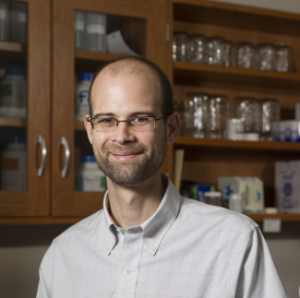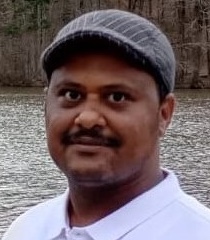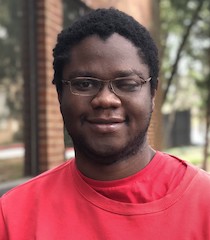
John Drake
Regent’s Professor
jdrake@uga.edu | personal web page | CV | Google Scholar | ORCID ID
Research Interests
John M. Drake is Professor of Ecology at the University of Georgia. His research seeks to understand the dynamics of biological populations and epidemics, focusing on how to bring experimental and observational data together with mathematical theory. Biological phenomena of interest include extinction, fluctuations in variable environments, the spatial distribution of populations (niche theory), Allee effects, demographic stochasticity, spatial spread, and near-critical dynamics. Practical applications of this work include decision support for managing invasive species, mapping the spread of infectious diseases, and forecasting disease emergence. Current projects concern the dynamics of Ebola virus in West Africa, spread of White-nose Syndrome in bats, and the development of a new theory for early warning systems of emerging infectious diseases. Dr. Drake has an interest in history and philosophy of modern (twentieth century) biology. Dr. Drake received his PhD from the University of Notre Dame in 2004 and was a Postdoctoral Fellow at the National Center for Ecological Analysis and Synthesis in Santa Barbara, California from 2004-2006. He has been at the University of Georgia since 2006. He was Leverhulme Visiting Professor in the Department of Zoology at Oxford University in 2012.
Teaching
Spring 2023 Classes:
- ECOL 4950 Senior Seminar
- ECOL 2300 Global Change and Emerging Infectious Diseases
- GRSC 7001 GradFirst Seminar
Fall 2022 Classes:
- FYOS 1001 First Year Odyssey Seminar, Ecology of Infectious Disease
- ECOL 4000/6000 Population and Community Ecology
Past Classes:
- ECOL 8310 Population and Evolutionary Ecology (Fall 2007, Fall 2008, Fall 2009, Fall 2011, Fall 2013)
- ECOL 4000/6000 Population and Community Ecology (Fall 2008, Fall 2009, Fall 2010, Fall 2011, Fall 2013, Fall 2014, Fall 2015, Fall 2016, Fall 2017)
- ECOL 8520 Fundamentals of Disease Biology II (Spring 2017)
- ECOL 8910 Multi-scale Modeling (Spring 2017)
- ECOL 8910 Ecological Niche Theory and Species Distribution Modeling (Spring 2016)
- ECOL 8910 Introduction to Computational Statistics (Spring 2015)
- ECOL 8910 Quantifying Biodiversity (Spring 2014)
- ECOL 8910 Nonlinear Time Series Analysis (Spring 2011)
- ECOL 8910 Time Series Analysis (Fall 2010)
- ECOL 8910 Meta-analysis (Spring 2010)
- ECOL 8990 Data Visualization (Fall 2008)
- ECOL 8990 Introduction to Applied Statistics (Fall 2007)
- ECOL 4950 Senior Seminar (Fall 2006, Spring 2013)
- FYOS 1001 First Year Odyssey Seminar (Fall 2011, Fall 2013, Fall 2016, Spring 2017)
Affiliations
- Odum School of Ecology (2006-present)
- Biomedical and Health Sciences Institute (2008-present)
- Faculty of Infectious Disease (2008-present)
Eric Marty
Research Professional
emarty@uga.edu | website: http://www.ericmarty.com/
Digital Arts Fellow, Willson Center for the Humanities and Arts (https://willson.uga.edu/)
Research Interests
My current work is focused on data visualization, data sonification, and multi-modal data representation. I am concerned with creating data representations optimized for exploration, analysis or communication. I rely on principles of visual and auditory perception to increase efficiency of communication and reduce bias. I am particularly interested in problems involving high-dimensional and time-based data, where standard visualization tools often fall short.
As a composer with a background in computer music, interactive art and design, I have long worked at the intersection of art and science. My creative work centers on emulating natural systems and integrating art with environment. The works are typically site-specific installations or performances embedded in the environment, and involve real-time stochastic audio synthesis algorithms, sensing and interactivity, and multi-channel sound spatialization. More about my creative work can be found here.
As Digital Arts Fellow at UGA’s Willson Center for the Humanities and Arts, I help build interdisciplinary collaborations among the arts and sciences.
Kerri-Ann Anderson
Postdoctoral Associate
Research Interests
My past research utilized mathematical and computational models of cultural evolution to simulate the evolution of vaccine belief-behavior interactions. Using cultural evolutionary frameworks, I have examined the effects of individual- and population-level vaccination beliefs and behaviors as well as the effects of decision-making biases, changing social networks, and influencer strength, on vaccine culture disease risk. My current goals as part of the Predictive Intelligence for Pandemic Prevention (PIPP) Phase 1 project team are to perform a series of analyses to identify and assess survey measures that most inform health-related intentions, behaviors, and public support, and incorporate evolving health decision-making strategies into dynamical models of disease transmission and health-behavior adoption.
Alpha Forna
Postdoctoral Associate
Research Interests
I am interested in the adaptation and application of machine learning methods for the analysis of epidemiological and biological data. For my doctoral research, I developed and analyzed machine learning models to predict survival outcomes for Ebola cases and re-estimated more representative estimates of case fatality ratios. I applied these models to produce more complete maps of Ebola case fatality ratios in West Africa, maps that include spatial residuals not captured by the machine learning models. During my time with the Drake and Rohani labs, I will develop machine learning based influenza prediction tools that could identify mutating influenza viruses as anomalous viral protein sequences. I will apply these predictive tools to detect novel influenza viruses with pandemic potential.

Mozzamil Mohammed
Postdoctoral Associate
mozzamilm@gmail.com | Webpage: Mozzamil Mohammed
Research Interests
I am a mathematical modeler with interests in community ecology and infectious disease modeling. My earlier investigations focused on understanding the important mechanisms driving species coexistence, community composition, biodiversity patterns on spatial environmental gradients, and plant-animal-human interactions. In the Drake lab, I will be exploring factors driving zoonotic spillover risks and the impacts of anthropogenic activities and public health policy on infectious disease dynamics.
Anna Willoughby
PhD Candidate
Anna.Willoughby@uga.edu
co-advised by Dr. Sonia Altizer (www.altizerlab.org)
Research Interests
I study how wildlife behavior, disease, and communities change across various anthropogenic gradients. I approach these questions through complementary modeling and field methods. In the past, I’ve looked at dynamics of macroparasites in South African baboons and virus diversity among cave-roosting bats. Ultimately, I hope my research will be translated into conservation and wildlife management policy.
Nicholas Adam
PhD Student
Research Interests
I am interested in infectious disease intelligence and forecasting, including tipping points and early warning signals, and how these interact with and inform policies for managing endemic infectious diseases in low resource settings.
Abdul Ali
PhD Student
Research Interests
My current focus is on comprehending the intricate webs of Japanese Encephalitis Virus (JEV) dynamics and transmission and mapping the ebbs and flows of outbreaks over the past decade. I am also interested in developing a comprehensive database of Transboundary Animal Diseases (TADs). I hope to contribute a broader perspective to the understanding of infectious diseases dynamics impacting global health.
Kane Moser
PhD Student
Research Interests
I am broadly interested in finding ways to synthesize empirical and theoretical approaches to understand the emergence and spread of infectious diseases at different scales. My specific interests include spatial analysis and risk mapping, host-parasite interactions, and the impacts of climate and biodiversity on zoonotic spillover. Currently, my work involves the ecology of emerging fungal pathogens as well as the dynamics of Ebola in West Africa.
Alumni
Post-docs (current position)
- Anurag Sau (Alfred Wegener Institute)
- Sukanta Sarkar (Alfred Wegener Institute)
- Kyle Dahlin (Virginia Tech)
- John Vinson (Southern Illinois University)
- Heather Barton (Lecturer, Washington University in St. Louis)
- Elijah Carter (Duke University)
- Chris Dibble (Research Scientist, Battelle)
- Blaine Griffen (Associate Professor, Brigham Young University)
- Barbara Han (Disease Ecologist, Cary Institute of Ecosystem Studies)
- Niles Johnson (Assistant Professor, Ohio State University)
- Kimmy Kellett (Assistant Professor, Georgia State University – Perimeter College)
- Drew Kramer (Assistant Professor, University of South Florida)
- Krisztian Magori (Assistant Professor, Eastern Washington University)
- Sean Maher (Assistant Professor, Missouri State University)
- Kaniz Fatema Nipa
- Eamon O’Dea
- John Robinson (Assistant Professor, Michigan State University)
- Cecilia Sanchez (EcoHealth Alliance)
- JP Schmidt (University of Georgia)
- Andrew Tredennick (Western EcoSystems Technology, Inc.)
Graduate Students
- Marcus Zokan (PhD, 2015)
- Tad Dallas (PhD, 2016)
- Sarah Bowden (PhD, 2016)
- Michelle Evans (PhD, 2020)
- Paige Miller (PhD, 2020)
- Robbie Richards (PhD, 2021)
- Joy Vaz (MS, 2021)
- Reni Kaul (PhD, 2021)
REU Students
- Dominic Gray, Norfolk State University (2014)
- Trianna Humphrey, Tugaloo College (2014)
- Paige Miller, Gustavus Adolphus (2014)
- Abby Smith, Carnegie Mellon University (2014)
- Evans Lodge, Calvin College (2015)
- Annakate Schatz, Mount Holyoke College (2015)
- Nikki Solano, Agnes Scott College (2015)
- Tim Wildauer, Bethany Lutheran College (2015)
- Richard Williams, Morehouse College (2015)
- Chevana Dorris, Jackson State University (2016)
- Yaw Kumi-Ansu, Emory University (2016)
- Lexi Lerner, Brown University (2016)
- Sarah Rainey, Radford University (2016)
- Magdalene Walters, University of Notre Dame (2017)
- Keri-Niyia Cooper, Savannah State University (2017)
- Kennedy Houck, Ursinus College (2018)
- JJ Taube, Bowdoin College (2019)
- John Nesbit, Georgia Tech (2024)
Research associates
- Ryan Riley
- Andrea Silletti
- Prahlad Jat
- Gordon Akudibillah
- Zach McElrath
- Arash Fard
- Brian Christian
- Tomlin Pulliam
- Ana Rivera-Cruz
- Annakate Schatz
- Spencer Hall
- Sophia Drewry
Visiting researchers
- Kevin Drury
- Eleanor Pardini
- Elodie Vercken
- Chris Michael
- Dustin Tench
- Jonathan Lillie
- Keisha Pressley
- Amanda Vincent
Undergraduates
- Aarya Oza
- Claire Morgan
- Emmanuel Ayo
- Danny Bruce
- Amara Channell
- Sarah Cressman
- Brian Christian
- Alicia Flowers
- Mallory Harris
- Ashley Janda
- Kevin Knoblich
- Aditya Krishnaswamy
- Katie McCurdy
- Michael McGuirk
- Elizabeth Miller
- Ronke Olowojesiku
- Tierney O’Sullivan
- Jack Owen
- Deeran Patel
- Tabita Popvici
- Giovanni Righi
- Jeff Shaprio
- Lindsay Shay
- David Stoker
- Theresa Stratmann
- Caroline Taylor
- Jo Walker
- Abby Wong
- Katie Zarada






